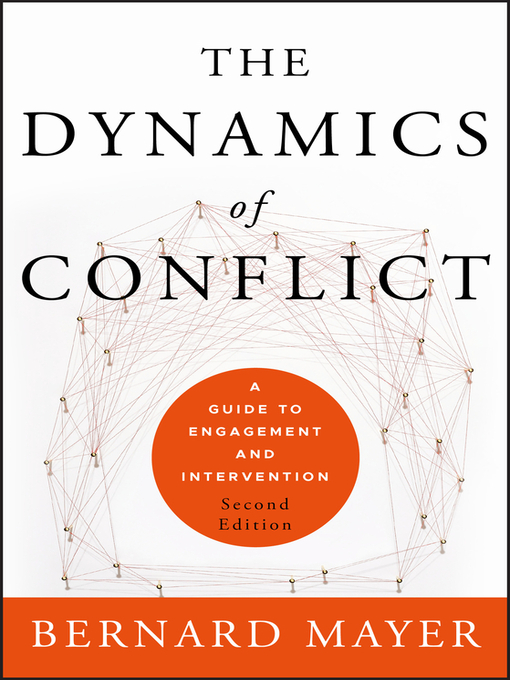The Dynamics of Conflict
When it was published in 2000, Bernie Mayer's The Dynamics of Conflict Resolution quickly became one of the seminal works in the conflict resolution field. The book bridged the gap between abstract theoretical approaches and practical handbooks and became an immensely valuable and accessible resource for experienced and novice practitioners, as well as for professors and students of conflict management who needed a deep yet practical view of conflict and methods for dealing with it.
The Dynamics of Conflict is the second edition of Mayer's classic book. While building on the strengths of the first edition, this thoroughly revised and updated book keeps pace with the most current trends and research in the field and explores four key concepts: interactional dynamics, system dynamics, culture and conflict, and conflict engagement. Like the first edition, the focus of the new edition is on the ways we can productively think about conflict and conflict intervention, rather than on specific techniques and processes. Mayer presents ideas about conflict as a set of conceptual tools that build on one another and contribute to a multifaceted view of conflict and conflict intervention but that also stand on their own.
Filled with illustrative examples, the book draws from the author's thirty years of experience with interpersonal, family, community, organizational, labor management, environmental, public policy, and international disputes and includes instances of conflicts that have been in the news. In addition, this vital resource contains information on the most important work that has been done in the past decade on culture, systems, and conflict engagement and shows how conflict concepts apply to new technologies such as online communication and conflict resolution efforts on the Web.
In the concluding chapter Mayer explores how conflict intervention efforts fit into more general values about peace, democracy, and social justice, and the personal impact that conflict work as a field has on conflict specialists.

